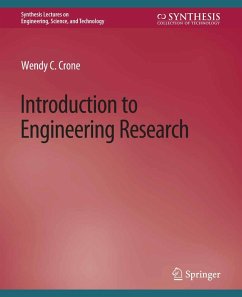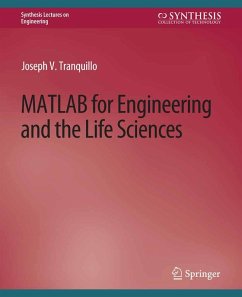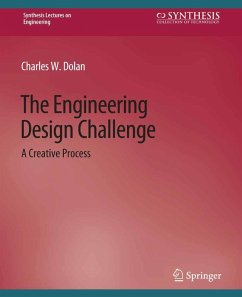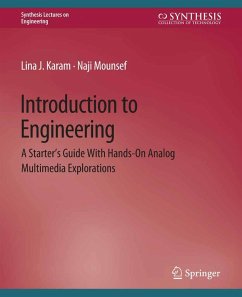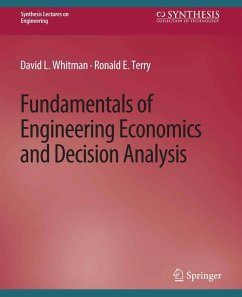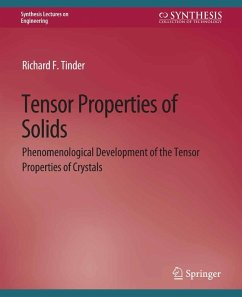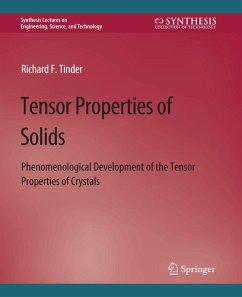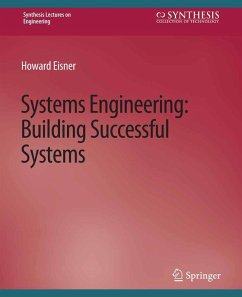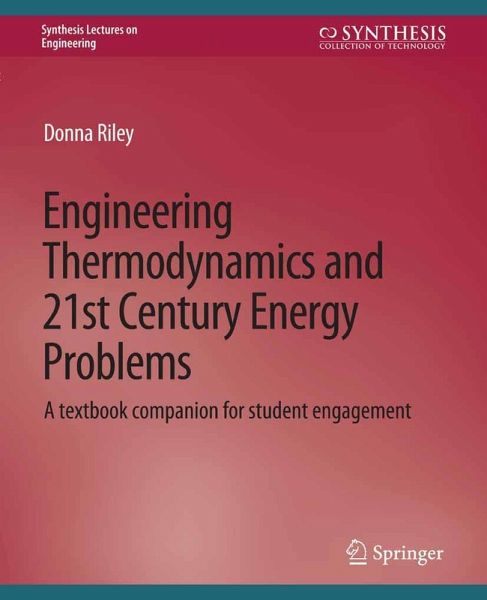
Engineering Thermodynamics and 21st Century Energy Problems (eBook, PDF)
A Textbook Companion for Student Engagement
Versandkostenfrei!
Sofort per Download lieferbar
Statt: 26,74 €**
20,95 €
inkl. MwSt.
**Preis der gedruckten Ausgabe (Broschiertes Buch)
Alle Infos zum eBook verschenkenWeitere Ausgaben:

PAYBACK Punkte
10 °P sammeln!
Energy is a basic human need; technologies for energy conversion and use are fundamental to human survival. As energy technology evolves to meet demands for development and ecological sustainability in the 21st century, engineers need to have up-to-date skills and knowledge to meet the creative challenges posed by current and future energy problems. Further, engineers need to cultivate a commitment to and passion for lifelong learning which will enable us to actively engage new developments in the field. This undergraduate textbook companion seeks to develop these capacities in tomorrow's engi...
Energy is a basic human need; technologies for energy conversion and use are fundamental to human survival. As energy technology evolves to meet demands for development and ecological sustainability in the 21st century, engineers need to have up-to-date skills and knowledge to meet the creative challenges posed by current and future energy problems. Further, engineers need to cultivate a commitment to and passion for lifelong learning which will enable us to actively engage new developments in the field. This undergraduate textbook companion seeks to develop these capacities in tomorrow's engineers in order to provide for future energy needs around the world. This book is designed to complement traditional texts in engineering thermodynamics, and thus is organized to accompany explorations of the First and Second Laws, fundamental property relations, and various applications across engineering disciplines. It contains twenty modules targeted toward meeting five often-neglected ABET outcomes: ethics, communication, lifelong learning, social context, and contemporary issues. The modules are based on pedagogies of liberation, used for decades in the humanities and social sciences for instilling critical thinking and reflective action in students by bringing attention to power relations in the classroom and in the world. This book is intended to produce a conversation and creative exploration around how to teach and learn thermodynamics differently. Because liberative pedagogies are at their heart relational, it is important to maintain spaces for discussing classroom practices with these modules, and for sharing ideas for implementing critical pedagogies in engineering contexts. The reader is therefore encouraged to visit the book's blog. Table of Contents: What and Why? / The First Law: Making Theory Relevant / The Second Law and Property Relations / Thinking Big Picture about Energy and Sustainability
Dieser Download kann aus rechtlichen Gründen nur mit Rechnungsadresse in A, B, BG, CY, CZ, D, DK, EW, E, FIN, F, GR, HR, H, IRL, I, LT, L, LR, M, NL, PL, P, R, S, SLO, SK ausgeliefert werden.




